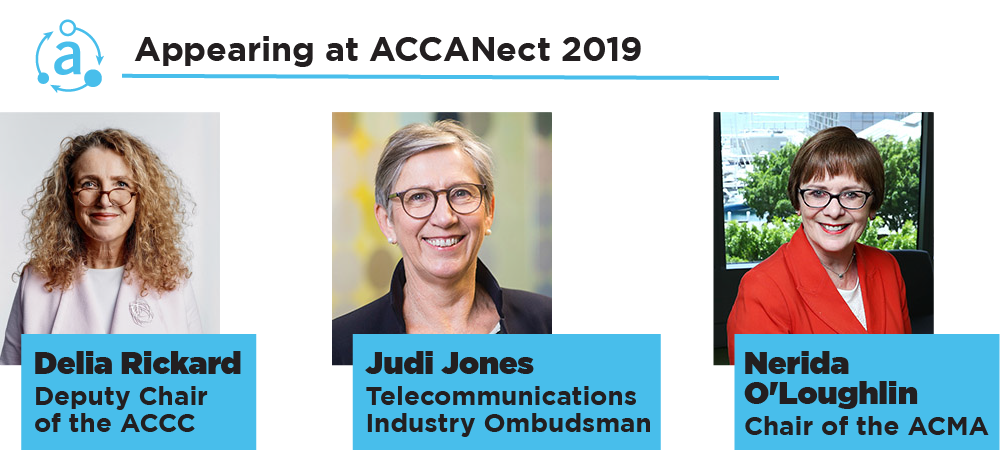Key Dates
Next Grant Round:
Applications for funding will open early 2025.
> Information about our Grants Program
Independent Grants Panel:
Results of the recent EOI will be notified Dec 2024.
> Information about our Panel
We can help: grants@accan.org.au
or phone 02 9288 4000
Subscribe to Grants Program mailings
William Tibben (University of Wollongong) and Gunela Astbrink (GSA Information Consultants)
Grant round: 2011

The NBN provides the wires that deliver broadband and fixed phone services to your home. Your telco pays the NBN owner, nbn co, to use the NBN and sell you broadband. This means that the service that you get from your telco is directly related to the service that nbn co gives telcos. This includes how long it takes to connect broadband customers, whether appointments with technicians are kept, the number and length of outages you may experience, or the speed of your broadband at different times of day.
Read more: NBN Wholesale Service Standards – What the ACCC Inquiry Means For You
Write comment (0 Comments)New research from the Australian Communications Consumer Action Network (ACCAN) has revealed that almost three in four Australians agree that it needs to be easier to make a complaint and to get their issues resolved when dealing with digital platforms such as Facebook, WhatsApp, eBay, and Service NSW.
A nationally representative survey of 1,000 Australians conducted by the peak body for communications consumers using Ipsos’ Digital Omnibus online survey found that 74% of respondents think that it needs to be easier for people to make a complaint, and 78% think that it needs to be easier for people to get their issues resolved on digital platforms. Digital platforms were defined as websites and apps such as social media, Government online services, job search sites, dating apps, messaging apps and online marketplaces. ACCAN’s polling also shows that 60% of Australians feel there’s not much they can do when something goes wrong online.
ACCAN recently submitted to the Department of Social Services consultation on the Australian Government response to the Royal Commission into Violence, Abuse, Neglect and Exploitation of People with Disability.
The 222 recommendations provided in the Disability Royal Commission (DRC) are a significant opportunity for Australia to create impactful, lasting, and positive change across a variety of critical areas for people with disability, including access to communications products and services.
ACCAN recommends that the government response to the DRC should include:
Women's Legal Services, NSW
Grant round: 2011

Telstra is once again making changes to its mobile phone plans. If you are an existing Telstra mobile customer, this may impact you.
From 26 August 2019, Telstra will be moving hundreds of thousands of customers off their old mobile phone plans and onto one of Telstra’s new plans.
Starting this week, Telstra is contacting customers who will be affected by this move. It’s important that you keep an eye out on your email inbox or letter box so that you know if you are one of the hundreds of thousands of customers who will be impacted by these changes.
Read more: Telstra phone plan changes
Write comment (5 Comments)The Australian Communications Consumer Action Network (ACCAN) Indigenous Steering Committee has called for investments in First Nations co-designed local solutions and dedicated funding for more digital skills training in a submission to the National Indigenous Australians Agency (NIAA)’s Indigenous Digital Inclusion Plan Discussion Paper.
Established after ACCAN’s 2021 Indigenous Advisory Forum, the Indigenous Steering Committee guides ACCAN’s work so that it is genuinely representative of the interests of First Nations peoples.
Read more: Indigenous Digital Inclusion Efforts Must Be First Nations Led and Adequately Funded
ACCAN recently submitted to the Department of Infrastructure, Transport, Regional Development, Communications and the Arts' Discussion Paper: Carriage Service Provider (CSP) registration or licensing scheme for the telecommunications industry.
ACCAN supports the creation of a registration or licensing scheme (RoLS) for the telecommunications market. A RoLS represents an important component to ensure the telecommunications market works efficiently for all participants. An RoLS would:

ACCAN often hears stories from consumers spending hours waiting and trying to resolve problems with telcos (eg on the phone, in shops, or via chat windows). We know that all this time has a value to consumers but what is the cost?
A new report released today from ACCAN provides advice on how to estimate the cost of consumer wait time.
Read more: Please hold: costing telco customer wait times
Write comment (0 Comments)Households struggling with the cost of connectivity would benefit from the introduction of new rules that would make it mandatory for telcos to offer a low-income product, according to the Australian Communications Consumer Action Network (ACCAN). The recommendation for new regulatory requirements comes as the peak body for communications consumers releases new research which examines the effectiveness of the telecommunication industry’s programs and offers aimed at assisting people on low incomes to stay connected.
Read more: New report highlights need for government and industry action on telco affordability
ACCAN recently submitted to the ACCC’s Public Inquiry into the Declaration of the Domestic Transmission Capacity Service, Fixed Line Services and Domestic Mobile Terminating Access Service Draft Report.
ACCAN agrees with and supports the draft report’s recommendations to extend the declarations of:
Read more: ACCAN’s Submission to the ACCC Combined Declaration
Institute for Interactive Media and Learning - University of Technology Sydney
Grant round: 2010
Read more: Mind the Gap: Refugees and Communications Technology Literacy

At ACCAN's national conference, ACCANect 2019, attendees will have the opportunity to hear from experts from across the telco industry, including Delia Rickard - Deputy Chair of the ACCC, Nerida O'Loughlin – Chair of the ACMA and Judi Jones - Telecommunications Industry Ombudsman.
These three organisation protect and enforce telco consumer safeguards in Australia. While they each handle different aspects of telco consumer protection, together they work towards safeguarding Australian telco consumers.
Read more: ACCANect 2019 Sneak Peek – ACCC, ACMA, and TIO on reliability
Write comment (0 Comments)Further investments to promote greater choice and availability for mobile phone users as well as improving the reliability and affordability of telecommunications services are vital to ensuring regional Australians are guaranteed access to essential telecommunications services, according to the Australian Communications Consumer Action Network (ACCAN).
The recommendations come from the peak body for communications consumers’ submission to the 2021 Regional Telecommunications Review. This triannual process examines the telecommunications landscape in regional, rural, and remote Australia to identify paths for improvement.
Read more: Further action needed for regional Australia to stay connected
ACCAN recently submitted to the Department of Infrastructure, Transport, Regional Development, Communications and the Arts' consultation on extending telecommunications security reform instruments.
ACCAN supports extending the Telecommunications (Carrier License Conditions—Security Information) Declaration 2022 and the Telecommunications (Carriage Service Provider—Security Information) Determination 2022 for 18 months while the Australian Government consults on longer term telecommunications security arrangements.
Read more: Extending telecommunications security reform instruments
 How much data do I need?
How much data do I need?
The data needs of every household are different, but the average household usage of data is between 80GB – 200GB per month. This means that most of the options outlined in our blog here would meet the needs of most households.
Read more: How much internet data do I need?
Write comment (0 Comments)ACCAN welcomes the news of the launch of DIGI’s Misinformation and Disinformation Complaints Portal, which implements the commitments made by signatories to the Australian Disinformation and Misinformation Code of Practice.
While the Complaints Portal represents a step in the right direction for limiting the spread of mis- and disinformation on digital platforms, we do have some concerns however regarding the accessibility of the Complaints Portal for consumers.
Read more: ACCAN Comments on DIGI Misinformation Complaints Portal
ACCAN recently provided a submission to the Senate Standing Committee on Environment and Communications on the Optus Network Outage (the Outage) occurring on 8 November.
As with all mass outage events, the Outage on Wednesday 8 November caused significant disruption across Australia. It inconvenienced customers, closed businesses, and disrupted access to essential services. In ACCAN’s view the Outage highlighted systemic issues that require renewed attention.
While there is significant policy work underway to address network reliability issues, the Outage raises the question of what reliability settings are appropriate, in an environment of widespread uptake of and reliance on connectivity. Answering this question requires consideration of the social and economic costs of disconnection, which should inform policy decisions with respect to reliability frameworks.
Last week the communications regulator, the Australian Communications and Media Authority, announced the registration of a new version of the Telecommunications Consumer Protections Code.
What does this mean for telecommunications consumers?
The Code is important because it contains rules that govern the life cycle of the customer’s relationship with their telco. From the telco’s advertising, to sales and contract/service agreements, through to customer service and billing, and switching telcos. It also covers rules about what telcos have to do to if customers have difficulty paying their bills, how they handle credit and debt management, and financial hardship.
The Code has been around since 2007, and this is its second major revision.
Read more: TCP Code update – Consumer safeguard remains flawed
Write comment (0 Comments)The Australian Communications Consumer Action Network (ACCAN) has welcomed an overall fall in complaints to the Telecommunications Industry Ombudsman (TIO), however, raised concerns that small businesses may be suffering as complaint levels from the sector reach a three year high.
Complaint data published today in the TIO’s Annual Report 2020-2021 shows that complaints about phone and internet services fell 6.1% in the last financial year. Among these 119,400 complaints, the TIO identified 19,689 complaints from small businesses, the highest volume of small business complaints in the last three years. Concerningly, complaints from small businesses about no or delayed action increased by 28.2% from 2019-2020, failure to cancel a service increased by 67.6% and provider uncontactable increased by 181%.
“Phone and internet services have never been more essential for people in Australia, with much of the country working and learning from home during rolling lockdowns throughout the last financial year,” said ACCAN Deputy CEO Andrew Williams. “While it’s positive to see that the overall level of complaints has fallen, we can’t lose sight of the fact that over 100,000 people have had to escalate a phone or internet problem to the TIO because they weren’t able to have their problem resolved by their telco.”
Read more: Telecommunications complaints fall, but serious concerns remain
ACCAN recently submitted to the Australian Communications and Media Authority’s (ACMA) consultation on the Proposed Telecommunications Financial Hardship Industry Standard (the draft standard).
ACCAN considers that the development of the financial hardship standard is a critical improvement in consumer protections for telecommunications consumers. ACCAN acknowledges and welcomes the actions by the Minister for Communications Michelle Rowland and the ACMA to progress the development of these protections.
ACCAN is supportive of the contents of the draft standard. We are pleased to see that it:
Read more: ACMA consultation on the Proposed Telecommunications Financial Hardship Industry Standard
